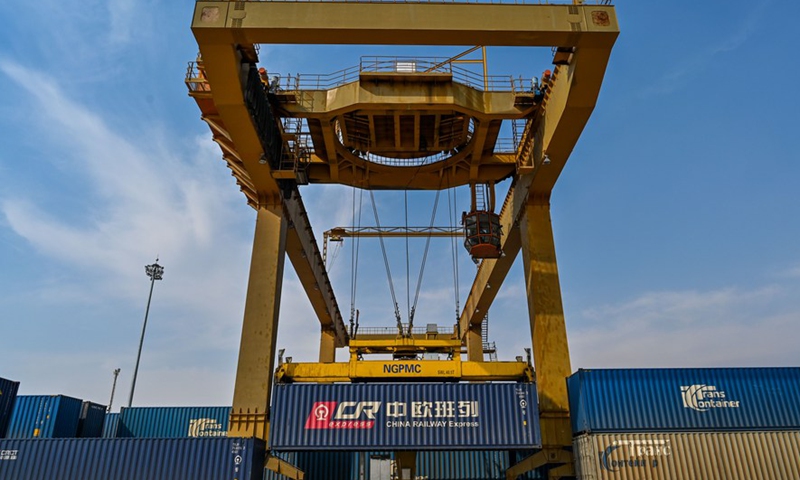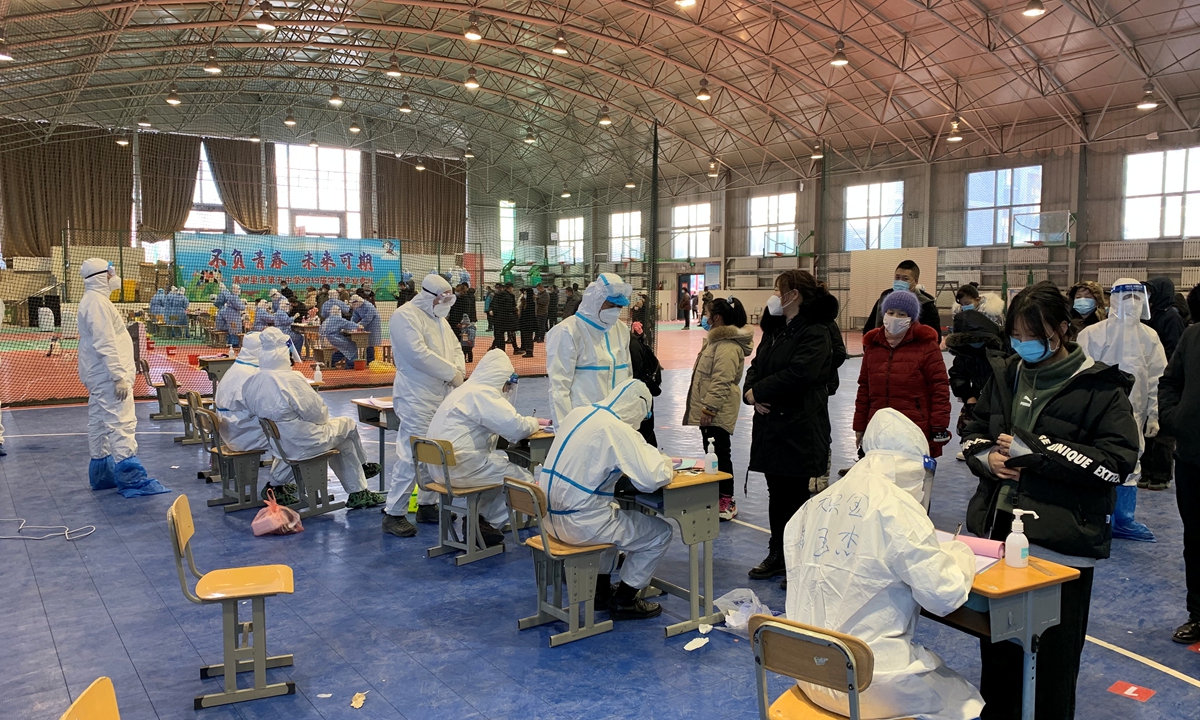Manzhouli, a major China-Russia trade hub, expected to fully resume operation after month-long shutdown
China-Russia cross-border trade likely to recover

A crane loads containers at the Manzhouli Railway Station in Manzhouli, a land port on the China-Russia border, north China's Inner Mongolia Autonomous Region, April 13, 2020.Photo:Xinhua
Chinese businesses witnessed partial disruptions from the month-long shutdown at the border port of Manzhouli, Inner Mongolia Autonomous Region, North China, which is a major trade hub between China and Russia, amid renewed pandemic prevention and control actions.
But trade is expected to resume soon as the border port service suspension will be lifted within a week, insiders said.
As the port takes up to 65 percent of the total bilateral trade by land between China and Russia, the port was under unprecedented pressure to re-open, quickly.
"Manzhouli has halted customs clearance for over a month, resulting in economic losses of at least several hundred thousand yuan per day, but the loss could be more if the contract breaches are taken into account," a manager surnamed Tang with a Manzhouli-based international freight agency told the Global Times on Tuesday.
The company mainly exports Chinese machinery and daily commodities to Russia, and imported Russian goods like cold-chain food to China, the manager said.
"We used to have five trucks delivering products from the Russia each day, but the number was cut to one or two as a necessary measure for virus control," he said.
Another trader told the Global Times that the company only imported ice cream from Russia in the middle of last year and avoided importing other goods to fend off risks.
But not all traders are bothered by the port service halt. Weng Qiang, a purchasing manager at Sunkfa Holding Group, a Beijing-based seafood company, told the Global Times that the restrictions at the Manzhouli port had no significant impact on its business.
"Our imports from Russia included mainly ship-frozen cod, that is, the fish are processed directly on board after being caught, and then taken to China by ships," Weng said.
Previously, three positive cases were found in nucleic acid tests in Manzhouli, according to a statement by the virus prevention and control team on November 27. The individuals' residential compounds and working places, close to the border, were shut down and quarantined.
In response to the need for stricter virus control at the port, the import of non-containerized goods by train was suspended starting December 1, covering goods ranging from timber and coal to agricultural products that need manual work, according to media reports.
Such steps were taken in line with the suspension of on-site operating activities including transportation and customs clearance at the border.
However, traders there told the Global Times on Tuesday that there is a plan for Manzhouli port service to be fully resumed starting from January 15. This was confirmed by a person close to the port customs on Tuesday, who said that trade is expected to resume soon.
Efforts by the local government to ensure trade flows while doing a good job in epidemic prevention will mean more automation at the port, an industry insider said.
The port will continue to improve the efficiency of customs clearance in January, with the goal of fully restoring normal customs clearance by the end of March, according to media reports.
From January to November 2021, total bilateral trade between China and Russia was 843.41 billion yuan ($132 billion), a year-on-year increase of 24 percent and exceeding the level of 2020, according to data from the General Administration of Customs.
With the full resumption of customs clearance at Manzhouli, agricultural trade, including that of fresh food, will likely pick up, driven by cross-border e-commerce, Han Lu, associate research fellow with the China Institute of International Studies, told the Global Times on Tuesday.
"The trend will be further boosted by the trade in energy such as natural gas, which is playing an increasingly important role in bilateral trade," Han said.


